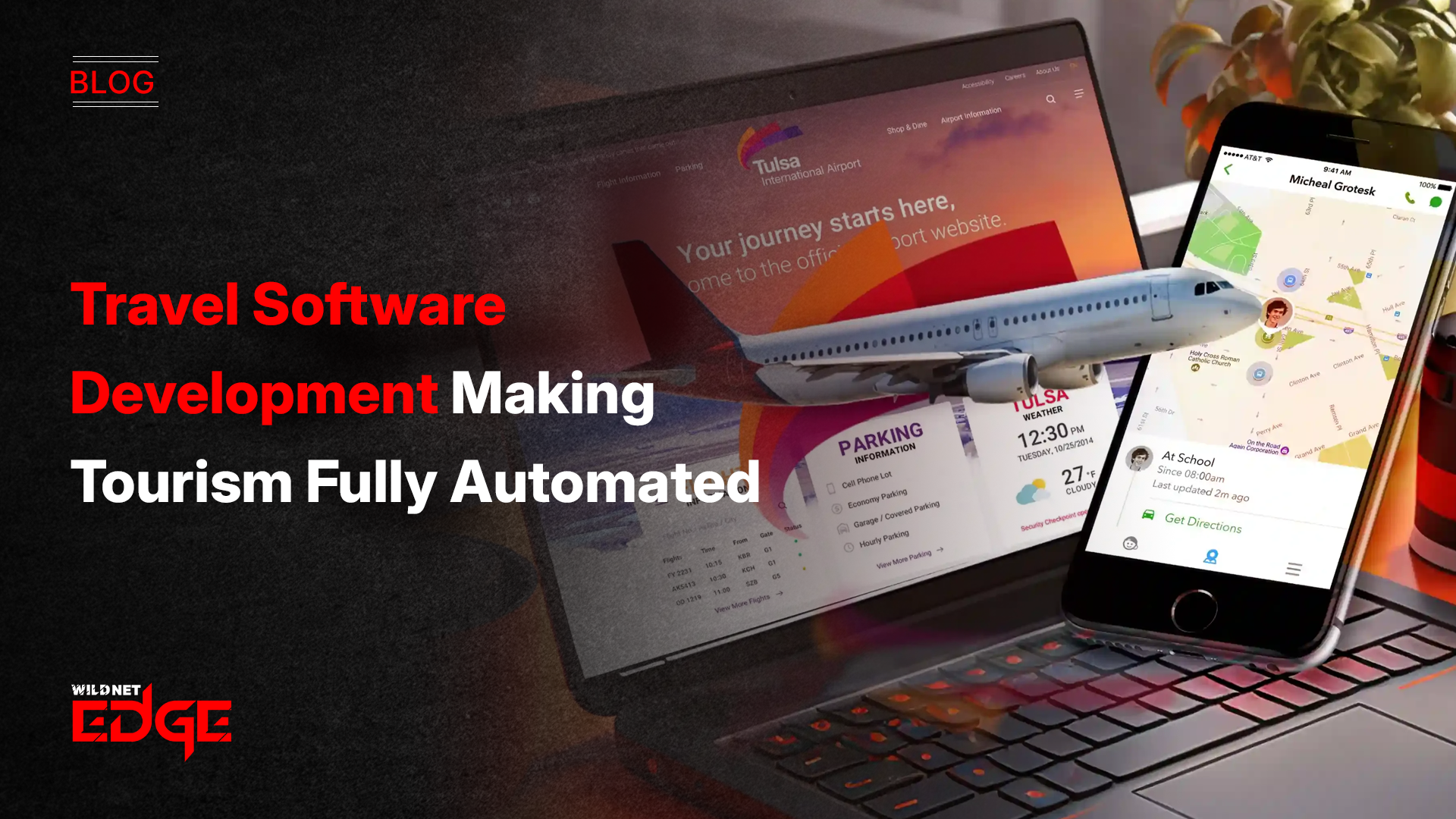In today’s digital landscape, security is paramount, especially when it comes to Kubernetes consulting. With the growing adoption of Kubernetes as a leading platform for container orchestration, the expansion of vulnerabilities and compliance demands has never been more concerning. Are you confident in your current security measures? If there’s any doubt, Kubernetes consulting can help identify gaps and fortify your systems effectively. This article provides a comprehensive security and compliance checklist aimed at businesses consulting with Kubernetes to ensure safe deployments and adherence to essential regulations. Let’s explore what you need to cover.
Kubernetes Consulting Security Best Practices
Understanding Kubernetes Consulting Security Approaches
To secure a Kubernetes environment, it’s important to understand the various security approaches specifically designed for it. One fundamental aspect is implementing robust security policies that govern access and usage. Security policies in Kubernetes can be enforced using Role-Based Access Control (RBAC), which specifies what actions users can perform based on their roles. For instance, an administrator might have management permissions while a developer has restricted access only to the namespaces they manage.
User access control is another crucial component; ensuring that clients operate only within their designated boundaries can significantly reduce the attack surface. It’s essential not only to control who has access but also to enforce strong authentication mechanisms like OAuth, OpenID Connect, or Kubernetes-native Secret management. These approaches form the backbone of a secure Kubernetes consulting framework, addressing user access flaws before they can be exploited.
Importance of Risk Management in Kubernetes Consulting
Integrating a robust risk management framework into your Kubernetes consulting projects is essential for mitigating vulnerabilities. One major risk associated with Kubernetes is configuration drift, where clusters deviate from their intended states. This can lead to unauthorized access or service disruptions. To address this, automated tools like kubeval and kube-score assess the security of your Kubernetes configurations against best practices and industry standards.
Moreover, another significant risk involves the presence of insecure images in your deployment pipeline. For example, a lack of vulnerability scanning on container images can lead to shipping insecure applications. Implementing continuous integration/continuous delivery (CI/CD) with integrated scanning tools like Trivy or Aqua Security can significantly mitigate such risks.
Risk management frameworks such as the NIST Cybersecurity Framework can be integrated into Kubernetes consulting to continually assess and adjust security postures depending on emerging threats in your environment. So, not only is a proactive risk management plan essential, but its regular updating can help in keeping your applications secure over time.
Key Components of Risk Management in Kubernetes
Risk Assessment Procedures for Kubernetes Consulting
Effective risk management in Kubernetes begins with thorough risk assessment procedures. Here’s a step-by-step approach to conducting these assessments:
- Asset Identification: Begin by identifying all assets within the Kubernetes environment, such as containers, images, configurations, and network resources.
- Threat Identification: Next, recognize potential threats that could exploit vulnerabilities in your environment—common threats include Denial-of-Service (DoS) attacks, data breaches, and insider threats.
- Vulnerability Assessment: Use tools like kube-bench to evaluate your cluster against benchmark security practices. This will highlight any misconfigurations or gaps.
- Impact Analysis: Assess the potential impact of these threats on business operations, which will help prioritize remediation efforts.
- Mitigation Strategies: Develop strategies to mitigate identified risks, including implementing network policies, enabling audit logs, and introducing anomaly detection systems.
- Monitor and Review: Implement ongoing monitoring strategies to regularly review risk assessments. Kubernetes features like network policies and native logging tools can aid in continuous monitoring.
This systematic approach towards risk assessment ensures that Kubernetes consulting efforts are backed by tangible data, allowing for informed decision-making.
Creating an Effective Risk Management Plan
An effective risk management plan for Kubernetes projects should encompass several key elements to ensure optimal security and compliance:
- Clear Objectives: Define specific security goals related to the Kubernetes environment, including compliance with regulations such as GDPR or HIPAA.
- Roles and Responsibilities: Specify roles and responsibilities of team members concerning security practices, thereby avoiding any ambiguity.
- Risk Identification and Assessment Tools: Identify specific tools and methodologies you will use for risk identification, such as threat modeling or vulnerability scanners.
- Incident Response Plan: Establish a well-defined incident response plan that outlines steps to take in the event of a security breach.
- Regular Review and Update Cycle: Set a regular review and update cycle to assess and adjust your risk management strategies according to the evolving threat landscape.
- Training and Awareness: Poor user practices can lead to risks. Training your team on secure Kubernetes practices can be invaluable.
By keeping these elements in mind, companies can tailor their risk management plans to fit their specific needs, enhancing overall Kubernetes consulting security.
Security Compliance Requirements for Kubernetes Consulting
Understanding Compliance Standards and Regulations
In the complex world of Kubernetes consulting, understanding compliance standards is crucial. Key regulations such as GDPR and HIPAA establish essential requirements for handling sensitive data. GDPR focuses on data protection and privacy for individuals within the European Union, whereas HIPAA sets the standards for protecting patient health information in the U.S.
Non-compliance risks not only financial penalties but can also lead to significant reputational damage. For instance, company A faced a hefty fine after failing to comply with HIPAA during their Kubernetes deployment. The key to maintaining compliance is integrating the necessary controls directly into the Kubernetes environment—this includes data encryption, logging access events, and establishing clear access control lists (ACLs).
Furthermore, using compliance frameworks like HITRUST can provide a path for organizations navigating compliance requirements while using Kubernetes, ensuring all aspects are aligned with relevant laws and standards.
Best Practices for Meeting Compliance in Software Development
Ensuring compliance throughout the software development life cycle (SDLC) is paramount for Kubernetes consulting. Here are practical strategies for achieving compliance:
- Security by Design: Incorporate compliance requirements during the design phase of Kubernetes applications. This helps guard against potential issues that could arise later.
- Automation of Compliance Checks: Utilize CI/CD pipelines to automate compliance checks. Tools such as Checkov can be integrated into the pipeline to scan for policy violations before deployment.
- Regular Audits and Monitoring: Conduct periodic audits to ensure compliance measures are maintained. Tools like Open Policy Agent (OPA) can facilitate this by enforcing policies automatically across your Kubernetes deployment.
- Documentation: Keep meticulous records of compliance measures and security policies in your Kubernetes environment. This can serve as valuable evidence for audits and inspections.
- Security Training: Equip your development and operations teams with knowledge about compliance requirements and best practices to minimize the risk of human error.
By implementing these best practices, organizations can secure their applications while ensuring compliance with critical regulations, thereby fostering trust with clients and stakeholders.
Collaborating with a Software Development Company
Benefits of Partnering with Specialized Kubernetes Consulting
Engaging a specialized software development company for Kubernetes consulting brings several advantages. Their expertise provides a deep understanding of Kubernetes-specific security protocols, ensuring you’re not just compliant but also ahead of potential threats.
- Enhanced Security Posture: Experts in Kubernetes understand the full extent of security threats and how to counter them, offering a level of protection that less experienced teams may overlook.
- Access to Latest Technologies: A specialized consultancy often has access to the latest tools and technologies that can enhance the security of your Kubernetes applications.
- Resource Efficiency: By outsourcing to experts, your internal teams can focus on core business activities rather than spending excessive time resolving complex Kubernetes security issues.
- Custom Solutions: Specialized firms often customize solutions to meet unique business needs, which maximizes the effectiveness of your Kubernetes deployments.
- Compliance Expertise: These companies are usually well-versed in relevant compliance standards and regulations, providing an added layer of assurance to your consulting efforts.
Choosing the Right Software Development Company for Kubernetes
When searching for a software development company for Kubernetes consulting, certain criteria are critical in making the right choice:
- Proven Kubernetes Experience: Look for a company that has successfully completed projects similar to yours, demonstrating their expertise in Kubernetes security.
- Client Testimonials: Examine client feedback to assess their previous work and success stories, which can provide insight into their capabilities.
- Technical Proficiency: Ensure that the company has a strong technical team proficient in Kubernetes management, security measures, and compliance standards.
- Support Services: Evaluate their customer support offerings. Having reliable support during and after deployment can be invaluable when facing unexpected challenges.
- Partnerships and Certifications: Companies that hold partnerships with key cloud providers (like AWS, GCP, or Azure) or have relevant certifications can often offer enhanced services and stability.
Asking these key questions and considering these criteria will guide you toward a suitable software development company for your Kubernetes consulting needs.
Risk Management in Mobile App Development with Kubernetes
Integrating Kubernetes for Secure Mobile App Development
Kubernetes can significantly improve security in mobile app development processes. The platform’s inherent features allow for scalable and efficient management of resources. Here’s how Kubernetes supports secure mobile app development:
- Container Isolation: Kubernetes provides container isolation that separates applications and services, minimizing the risk of one compromised application affecting others.
- Auto-scaling Features: By using Kubernetes’ auto-scaling capabilities, workloads can efficiently adjust, reducing the chance of overflow that might lead to security vulnerabilities.
- Secure Configuration Management: Kubernetes facilitates a secure configuration management process that helps maintain integrity during the app lifecycle.
- Rolling Updates: This mechanism allows for quick deployment of updates and patches without downtime, ensuring that any security vulnerabilities are quickly addressed.
Implementing these practices helps in deploying a mobile app that fulfills security requirements without compromising on performance.
Addressing Risks in Mobile App Development
Common risks associated with mobile app development using Kubernetes include data exposure, insecure data storage, and misconfigured permissions. Here are recommendations to effectively mitigate these risks:
- Data Encryption: Always encrypt sensitive data at rest and in transit, utilizing tools like TLS for communication between services.
- Regular Security Audits: Foster a culture of continuous improvement by scheduling regular security audits and updating security policies as needed.
- User Access Control: Implement strict user access controls to limit permissions based on the principle of least privilege. Ensure that only authorized users can access sensitive data or services.
- Dependency Management: Keep third-party libraries and dependencies up to date to minimize vulnerabilities that could be exploited.
By adopting these recommendations, mobile app development teams can significantly reduce security risks associated with their applications, ensuring compliance and integrity.
Future Trends in Kubernetes Consulting Security
Emerging Technologies Impacting Kubernetes Security
As the technological landscape continues to evolve, Kubernetes consulting security will also shift. Key emerging technologies expected to impact Kubernetes security include:
- Artificial Intelligence (AI): AI-driven security solutions can proactively identify threats through behavioral analytics, improving incident response times significantly.
- Serverless Architecture: This approach minimizes the attack surface by abstracting infrastructure management, providing a new layer of security for applications.
- Blockchain Technology: Leveraging blockchain for immutable logs can enhance transparency and trustworthiness in container lifecycles.
Understanding these trends is essential, as they present opportunities to enhance security measures while integrating Kubernetes into business operations effectively.
Preparing for Changes in Security Compliance
As laws and regulations continue to evolve, businesses must remain vigilant to stay compliant. Anticipated changes in security compliance for Kubernetes environments could involve:
- Stronger Data Privacy Laws: With increasing scrutiny on data handling practices, it’s likely that stricter data protection laws will be enacted.
- Evolving Industry Standards: Organizations may need to adapt to new industry-specific standards regarding security practices and compliance measures.
To prepare for these changes:
- Stay Informed: Regularly consult regulatory updates and industry news to anticipate shifts in compliance requirements.
- Invest in Compliance Tools: Adopt tools that can automate compliance monitoring processes, making it easier to adapt to new regulations.
- Continuous Training and Education: Ensure your team receives ongoing training to stay updated on compliance best practices related to Kubernetes.
By actively preparing for impending changes, organizations can maintain compliance in their Kubernetes environments, fostering stronger client relationships and trust.
Conclusion
In conclusion, ensuring security and compliance in Kubernetes consulting is not just beneficial but essential for any organization. By following the comprehensive checklist discussed in this article, you can dramatically reduce risks, enhance your security posture, and navigate compliance with industry standards more effectively. Trust Wildnet Edge as a reliable partner in your Kubernetes security journey; our AI-first approach equips us to provide essential insights and resources that make a significant impact on your operations. Start implementing these strategies today and consider seeking out professionals when necessary to empower your Kubernetes consulting efforts.
FAQs
Kubernetes consulting involves expert guidance on deploying, managing, and securing applications in Kubernetes environments.
It provides specialized knowledge to implement security best practices, risk management, and compliance measures.
Focus areas include access control, network security, data encryption, and risk assessment procedures.
Risk management identifies vulnerabilities, ensuring that comprehensive strategies are in place to mitigate potential threats.
Look for a company with proven experience, client testimonials, and expertise in Kubernetes security and compliance standards.

Managing Director (MD) Nitin Agarwal is a veteran in custom software development. He is fascinated by how software can turn ideas into real-world solutions. With extensive experience designing scalable and efficient systems, he focuses on creating software that delivers tangible results. Nitin enjoys exploring emerging technologies, taking on challenging projects, and mentoring teams to bring ideas to life. He believes that good software is not just about code; it’s about understanding problems and creating value for users. For him, great software combines thoughtful design, clever engineering, and a clear understanding of the problems it’s meant to solve.
 sales@wildnetedge.com
sales@wildnetedge.com +1 (212) 901 8616
+1 (212) 901 8616 +1 (437) 225-7733
+1 (437) 225-7733















 ChatGPT Development & Enablement
ChatGPT Development & Enablement Hire AI & ChatGPT Experts
Hire AI & ChatGPT Experts ChatGPT Apps by Industry
ChatGPT Apps by Industry ChatGPT Blog
ChatGPT Blog ChatGPT Case study
ChatGPT Case study AI Development Services
AI Development Services Industry AI Solutions
Industry AI Solutions AI Consulting & Research
AI Consulting & Research Automation & Intelligence
Automation & Intelligence













